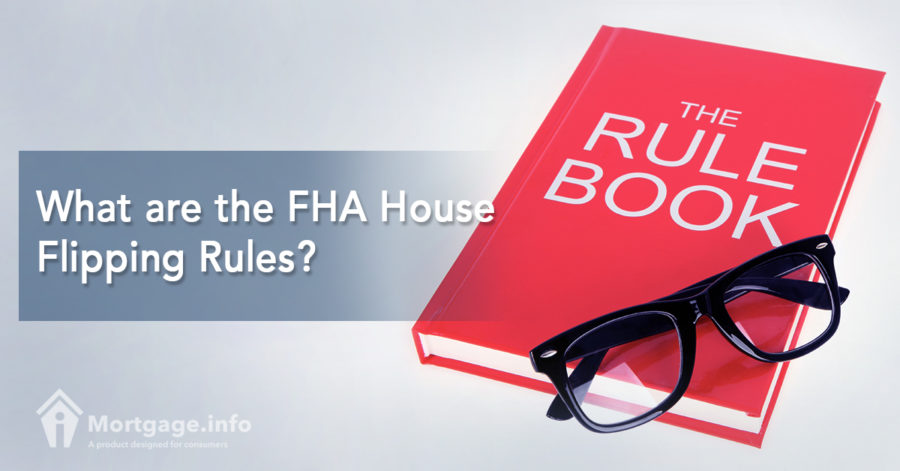House flipping is very frowned upon when it comes to government-backed financing, such as the FHA loan. In fact, the FHA has very strict FHA house flipping rules. If you are not aware of the rules, it could leave you without the ability to purchase/sell a home and could even create legal issues for you in certain circumstances.
What is House Flipping?
First, let’s look at the definition of house flipping.
Essentially, what it means is that a person (investor) purchases a home for a low price. This usually happens with foreclosed homes. He or she then turns around and sells the home for a significant profit shortly after buying it.
This goes against what the FHA stands for since they are there to help low to middle-income families purchase a home that would otherwise be ineligible for financing. They also protect the buyer, which in this case, the buyer would be taken advantage of because he will pay a much inflated price for the home.
The FHA Rules and Guidelines for House Flipping Loans
The FHA has very clear cut rules regarding house flipping investment properties. These rules do not pertain to the person selling the home per se, since investors cannot secure FHA financing. It affects the buyer mostly because FHA financing will be unavailable for properties that investors intend to flip. The rules are as follows:
- There must be more than 90 days (91 days is acceptable) between the date the seller acquired the property and the date you execute your sales contract. This basically means the time between the seller’s original closing date and the date you agree to a sales price and sign the contract must be greater than 90 days.
- If the seller owned the property for 91 to 180 days, the sale may go through, but the FHA has distinct rules. Generally, they will require a 2nd appraisal, for which you cannot pay. This 2nd appraisal will help to determine if the inflated price is the actual value of the home. Typically, lenders and the FHA require this when the inflated price of the home is more than 100% of the price the seller paid originally.
- If the seller owned the property between 91 and 365 days and the property sells for 5% more than its lowest sale price in the last 12 months, the lender may require a 2nd
If the two appraisals do not meet and the 2nd appraisal is more than 5% higher than the 1st appraisal, the FHA requires the lender to use the lesser of the two values.
Exceptions to the FHA House Flipping Rules
As with any other rules in the mortgage industry, there are exceptions to the FHA house flipping rules. They pertain to the following:
- If an employer or relocation company purchases the home in order to help an employee move quicker, the flipping rules do not matter. This is not a situation where the employer wants to make a huge profit; they are just helping an employee that must transfer to a new location.
- Homes that HUD purchased as a part of the foreclosure process and will resell to try to make the money back do not count.
- Any homes that non-profit agencies sell as a part of the HUD process do not count.
- Any homes that you inquire via an inheritance are not considered flipping.
How the Rules Affect Buyers Seeking FHA Loans and Sellers
Buyers are the most affected by the FHA house flipping rules, but sellers suffer as well. Buyers suffer the most because their choices for a home become limited as a result of the FHA guidelines. If you are a buyer and you know FHA financing is your only option because of some type of special circumstance, such as lower credit scores or higher debt ratios, you might have to look around a little more for a home if the area you wish to live has a lot of investors flipping houses.
As a seller, selling the home becomes more difficult with the FHA house flipping rules. Because the pool of buyers that you could use decreases, it may take longer to sell the home. As a property investor, the idea is to get rid of the homes as fast as possible in order to make a profit. Some sellers eventually have to lower the sales price in order to increase the amount of available buyers for the home they need to sell.
The FHA has the Strictest House Flipping Rules
The FHA is among the only entity that has such strong house flipping rules. The rules are clearly laid out in their handbook; they will not provide financing to anyone that intends to purchase a home that a seller flips.
There are other programs that you can utilize, including Fannie Mae, Freddie Mac and even USDA loans. Before you sign a sales contract, if you intend to use FHA financing, you should inquire from the seller how long he held the home to ensure that FHA financing is an option for you.
The FHA house flipping rules are to protect everyone, including the buyer. If you found a home that the seller recently acquired, you may have to wait until the 90-day period is up and even then, hope that the 2nd appraisal meets the value you agreed to pay. If not, there are other financing options out there, but you may have to think outside of the box to find the one that works for you.

